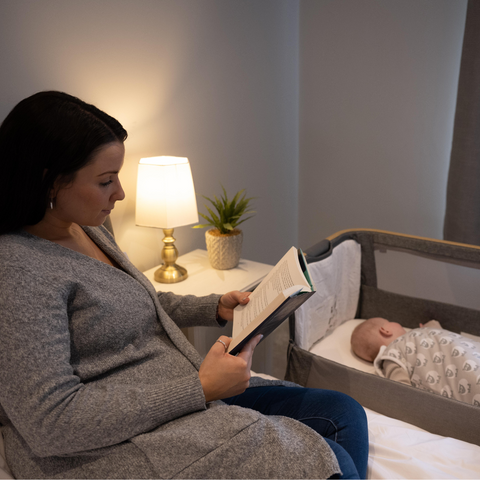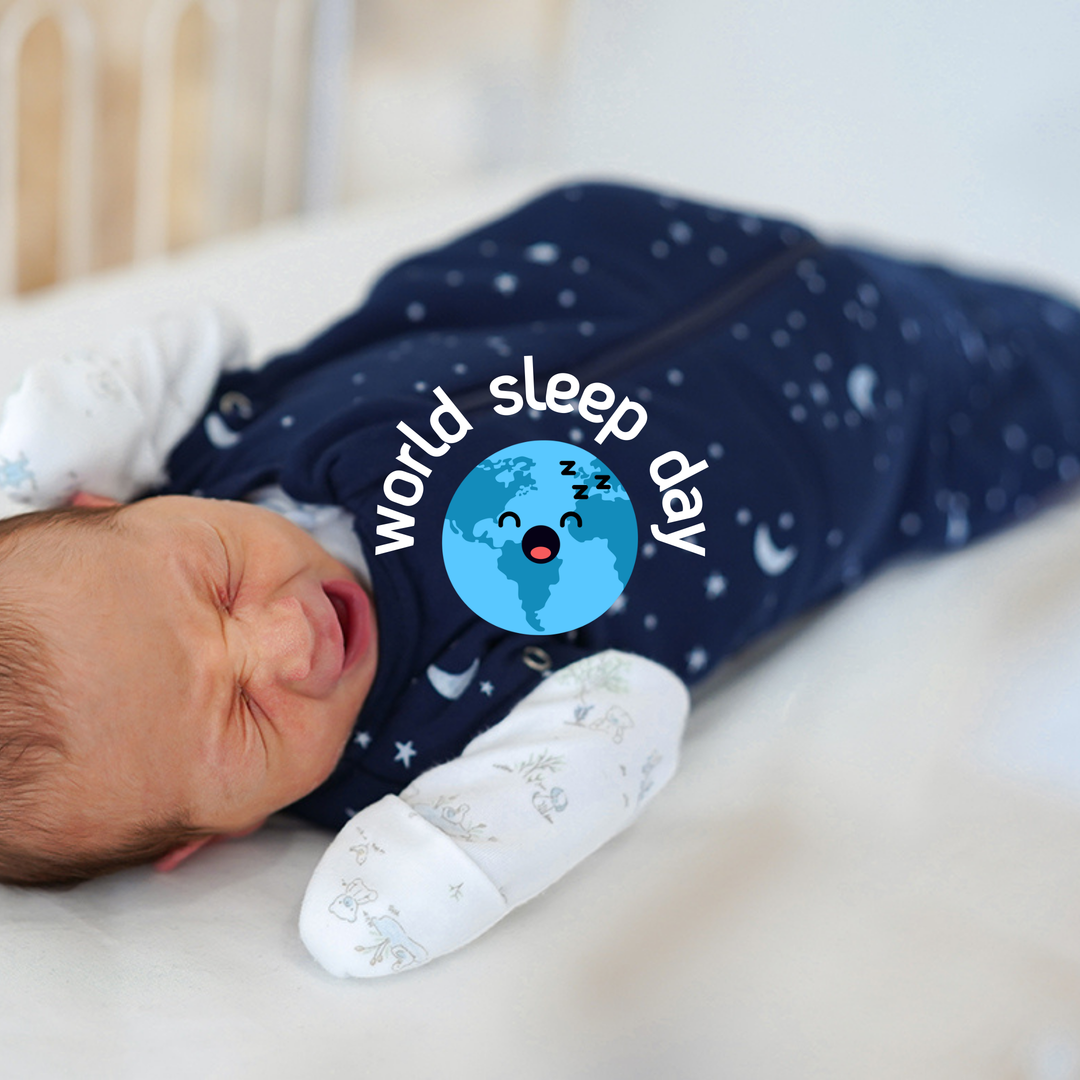The Answer In brief:
Here's a top tip that could save a young baby's life:
Sleeping with your baby in the same room for at least the first 6 months of their life can help reduce the chance of SIDS (sudden infant death syndrome) by up to 50%. That's sleeping in the same room, but not the same bed, for both daytime naps and night time sleeps.
* Research from the American Academy of Paediatrics.
Always follow safe sleep guidelines.
The Answer In detail:
Welcoming a new member into the family is a joyous occasion, accompanied by a whirlwind of emotions and newfound responsibilities. One of the key concerns for parents revolves around ensuring the safety and well-being of their precious bundle, especially during sleep. In this blog, we'll delve into a top tip that could make a significant difference – room sharing with your baby for the first 6 months of their life. Backed by research from the American Academy of Paediatrics, this practice has been shown to reduce the risk of Sudden Infant Death Syndrome (SIDS) by up to 50%.
Understanding SIDS
Sudden Infant Death Syndrome is a term used to describe the sudden, unexplained death of an otherwise healthy infant, typically during sleep. While the exact cause remains unknown, there are various risk factors associated with SIDS, including sleep environment and sleep position.
The Top Tip: Room Sharing
Research from the American Academy of Paediatrics has highlighted a simple yet impactful strategy to enhance the safety of your baby's sleep – room sharing. Here's how it works:
-
Shared Space: Place your baby's cot, bassinet, or 'crib' in your bedroom. This arrangement provides the closeness that promotes bonding and allows for quick responses to your baby's needs.
-
Same Room, Separate Beds: While sharing the same room is beneficial, where you can it is best for your baby to have their own sleep space. Avoid bed sharing, as it carries its own set of risks. If you choose to share a bed with your baby, ensure you follow the guidelines in order to do this as safely as possible. The Lullaby Trust have the best advice for this.
-
Day and Night: Implement room sharing for both daytime naps and nighttime sleeps. Consistency in this practice reinforces a secure sleep environment for your baby.
The Benefits of Room Sharing
-
Reduced SIDS Risk: Studies have shown that room sharing for at least the first 6 months of your baby's life can reduce the risk of SIDS by up to 50%.
-
Convenient Monitoring: Proximity allows you to monitor your baby easily, ensuring a prompt response to their needs, whether it's feeding, soothing, or comforting.
-
Bonding Opportunities: Room sharing promotes early bonding between parents and the baby, fostering a sense of security and attachment.
-
Peace of Mind: Knowing that your baby is within arm's reach provides peace of mind, especially during the crucial early months of parenthood.
Following Safe Sleep Guidelines
While room sharing is a highly recommended practice, it's essential to align this habit with established safe sleep guidelines. These guidelines include:
-
Back to Sleep: Always place your baby on their back to sleep, as this position is associated with a lower risk of SIDS.
-
Firm Sleep Surface: Use a firm and flat sleep surface for your baby, free of soft bedding, toys, or loose objects.
-
Avoid Overheating: Dress your baby in appropriate sleep clothing to maintain a comfortable temperature. Overheating is a potential risk factor for SIDS.
-
No Smoking Exposure: Ensure a smoke-free environment for your baby, as exposure to tobacco smoke is linked to an increased risk of SIDS.
Room sharing with your baby during their first 6 months is a simple yet powerful measure to enhance their safety and reduce the risk of SIDS. By adhering to this top tip and incorporating it into your baby's sleep routine, you not only create a secure sleep environment but also foster a stronger bond between you and your little one. As always, consult with your paediatrician for personalised advice and guidance on safe sleep practices. Embrace the joy of parenting with the knowledge that your commitment to safe sleep contributes to a healthier, happier start for your baby's journey.












